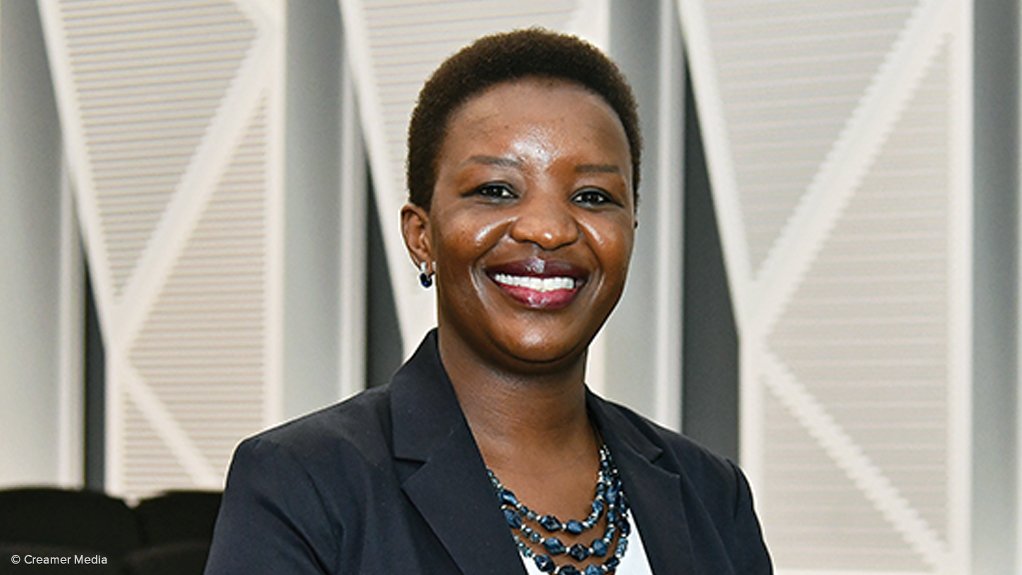Business Leadership South Africa (BLSA) CEO Busi Mavuso has reiterated the organisation’s commitment to supporting government in the development of policy that can drive the country’s economic recovery.
This follows on the heels of the appointment of South Africa’s new Finance Minister, Enoch Godongwana, who will be “keenly watched by both local and international business to detect whether it means an improvement or deterioration in the business environment”.
Godongwana succeeded former Finance Minister Tito Mboweni, who stepped down from the position last week.
Mavuso stresses that Godongwana is “taking on one of the most difficult jobs in the country” as any decisions he makes will be central to business confidence.
Mboweni, she adds, was largely focused on structural reforms and fiscal discipline, which are both “fundamental to the outlook for the economy”. Taking this into account, Mavuso says Godongwana will, as the new Minister, “need to move quickly to signal his commitment to continuing the progress on both”.
South Africa’s sharply deteriorating debt position of the sovereign, which triggered the loss of investment-grade ratings last year, is a risk to the entire economy, Mavuso laments.
A fiscal crisis, which would inevitably trigger a financial crisis and deep recession, is a risk that businesses must factor into their outlook, she stresses, highlighting that it “diminishes confidence and sharply reduces investment appetite, which in turn reduces growth”.
As a result, government cannot spend its way to growth, Mavuso states, noting that the impact on the sovereign balance sheet of spending at the current level of indebtedness damages confidence and can easily be net negative for growth.
“There is no alternative but to constrain spending so that the fiscal outlook improves. In choosing what to restrain, [the National] Treasury must make difficult trade-offs. Consumption spending is the real problem – this has lower multiplier effects into the economy than investment,” she elaborates.
“Investment must be central to our economic recovery thinking, as President Cyril Ramaphosa has repeatedly made clear. Public sector investment is a key part of the overall investment drive and should be protected. It is consumption expenditure that must be constrained.”
Structural reforms are also fundamental and have the potential to provide stimulus for free.
As an example, the Operation Vulindlela project running between the Presidency and the National Treasury has been “arguably the biggest confidence boost” so far that the reforms often referred to by the President will become a reality.
It will be important that Vulindlela gets the new Minister’s firm and public backing, as it had from his predecessor, Mavuso says.
She refers to advances, particularly the 100 MW energy generation licence-exemption threshold, that have given a significant confidence boost to the economy.
“Following through with progress on bulk water infrastructure, spectrum auctions and fundamental reform to skills visas has the potential to add to that momentum. The new Minister can accelerate momentum along with some of his new colleagues in Cabinet, such as new Communications and Digital Technologies Minister Khumbudzo Ntshavheni,” Mavuso says.
She adds that Godongwana will also have to manage the competing demands for finance from across government.
“A disturbing trend that business has been concerned about for some years has been a perception that the Treasury’s authority on spending has become less absolute. Fiscal decisions that have no rational connection to policy objectives have become too common.”
The bailing out of South African Airways is an obvious example, Mavuso says.
“Of course, every part of government wants more money, but Treasury is the institution that must consider the trade-offs. It must be endowed with the skills to assemble and study the evidence for the real impact of spending choices,” she comments.
She says evidence “must be central” to how South Africa’s scarce resources are allocated.
The Minister will need to demonstrate great political skill to hold the line on this – his Cabinet colleagues will need to accept it when Treasury evidence shows that their pet project is not in fact the best use of public money, she suggests.
Additionally, given that Treasury is best positioned to assess trade-offs across government, Mavuso says she believes it to also be the best positioned to understand the impact of policy on the economy.
“The biggest strides we’ve made as a country has been when Treasury develops and advocates for important policy changes itself. Treasury needs to be more than a holder of the purse strings, but an active participant in deciding the best way to spend public money and the policy that affects how the economy operates,” she explains.
EMAIL THIS ARTICLE SAVE THIS ARTICLE ARTICLE ENQUIRY
To subscribe email subscriptions@creamermedia.co.za or click here
To advertise email advertising@creamermedia.co.za or click here











